Britain must be more deaf aware, says star of ground-breaking BBC documentary
A new immersive film gives viewers a look at what life is like in deaf Britain today. The Independent meets one of its stars Marios Costi – football lover, family man and passionate advocate of deaf rights
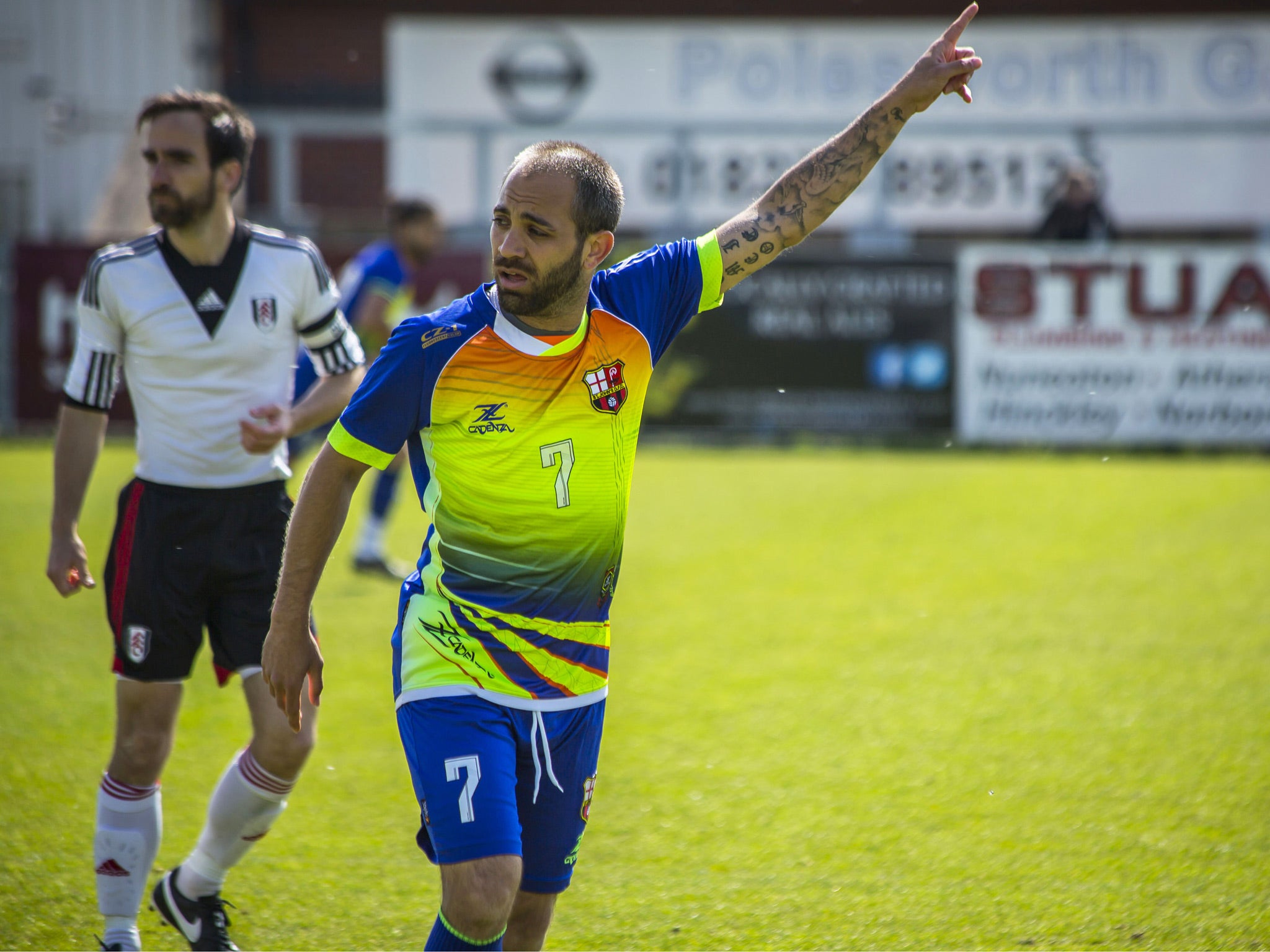
Your support helps us to tell the story
From reproductive rights to climate change to Big Tech, The Independent is on the ground when the story is developing. Whether it's investigating the financials of Elon Musk's pro-Trump PAC or producing our latest documentary, 'The A Word', which shines a light on the American women fighting for reproductive rights, we know how important it is to parse out the facts from the messaging.
At such a critical moment in US history, we need reporters on the ground. Your donation allows us to keep sending journalists to speak to both sides of the story.
The Independent is trusted by Americans across the entire political spectrum. And unlike many other quality news outlets, we choose not to lock Americans out of our reporting and analysis with paywalls. We believe quality journalism should be available to everyone, paid for by those who can afford it.
Your support makes all the difference.Marios Costi is standing on a table, in front of a trophy cabinet that covers the whole back wall of the large room we’re in. He rolls up his trouser leg in order to show me and our interpreter a tattoo, a black, white and red crest, his beloved football team's badge. Most of his fellow players on St John’s DFC have one too. The north London-based team has been going since 1913 and their record is one that any Premiership club would be proud of – hence the need for a decent-sized place to put the silverware.
The self-funded team has won the Deaf Champions League three times in the past seven years. They narrowly missed out on a fifth win this year, only losing in the final to Istanbul Sessizler, a Turkish outfit with sponsors and considerable financial support. Like the hearing leagues, there are a myriad of other competitions they take part in; they’re eight times British Deaf Cup winners and have won the England Cup five times. It’s a family affair – Marios’s father played for the club, and his brother Memnos is the manager of the men’s team. “My heart belongs to St John’s I’ve never played for another club and I never would,” he says. As he summons us to the cabinet to go through where each cup won in the last twenty years came from, I don't doubt it.
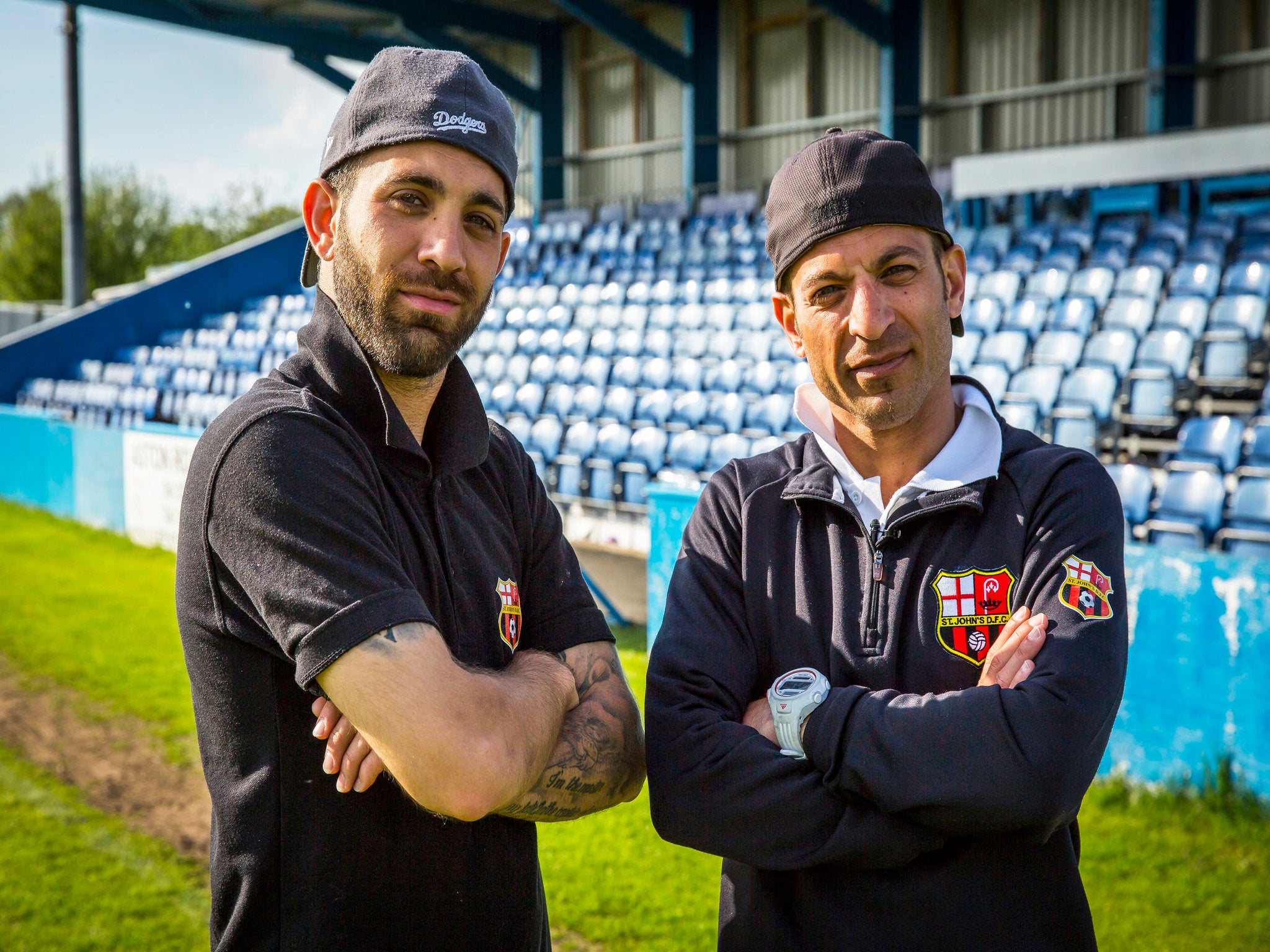
Marios is just back from Italy, where he went to support the three St John’s players who were in the Deaf World Cup GB team. He would have been playing himself if it wasn’t for the fact that his wife Tina has recently given birth to their second son, Alejandro (they also have 11-year-old Ollie, who is hearing). While the men had to make do with seventh place – they lost 5-1 to Argentina in the playoff – the women’s team brought home the bronze medal. Despite regular strong performances in national and international competitions, the players have to crowdfund their own appearances. Marios edited a video that the guys used to help to raise £25,000 needed to compete. “There’s not the same celebration as other sports,” he says of times when they bring home the prizes. “We get a little hand clap...there’s no sort of formal congratulations. It’s the players really that it’s more disappointing for.” There is also, crucially, no money to put in the bank.
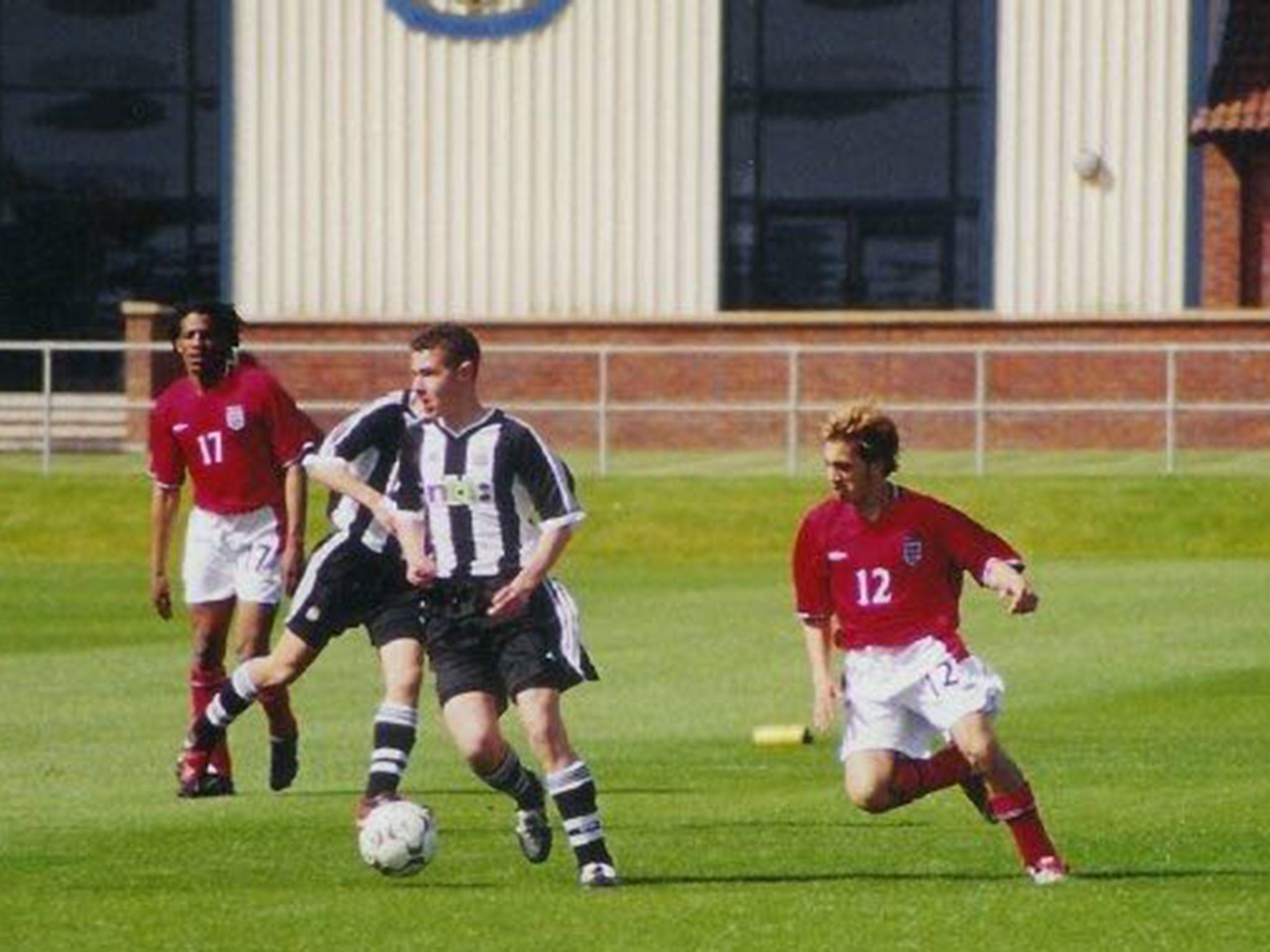
He’s hoping that Life and Deaf, a new BBC4 documentary following four members of the social club affiliated to the football team, St John’s Deaf Club, will raise the profile of the deaf game, as well as giving viewers an insight into deaf life in Britain. There are an estimated nine million people in the UK who are deaf or hard of hearing and around 100,000 like Marios who are profoundly deaf and use sign language as their first language. The absorbing film follows Marios and his wife Tina, brother Memnos and family friend Abigail. All grew up going St John’s and as adults, are heavily involved behind the scenes at the club that puts on a whole host of activities for deaf people of all ages.
The documentary’s filmed with subtitles and no spoken commentary. The subjects communicate using British Sign Language (BSL) “We wanted to give viewers the experience of being in the linguistic minority, as deaf people are every day,” says producer/director Clare Johns. She stresses that the film, made with a mixture of a deaf and hearing team is a celebration of the deaf community: “It’s such a witty, warm, family-orientated world. This is a way of accessing and navigating that.”
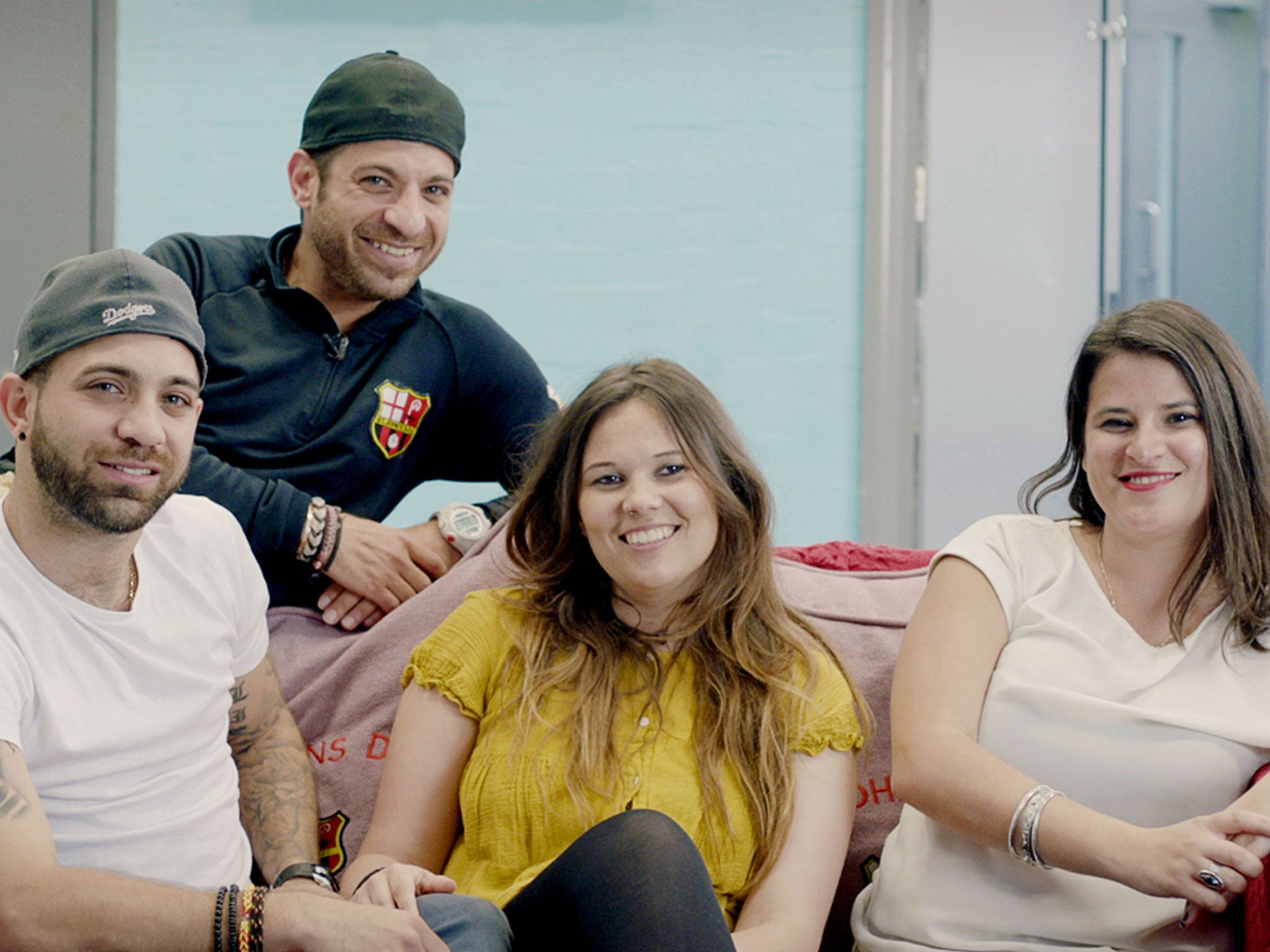
At first, it’s easy to focus on difference: the signing is rapid, and faces hugely expressive. All eyes are on the person talking, so all conversations are communal, it feels like watching a game of charades, without knowing any of the answers. Then there's the realisation that it's just the language that's different. In the same way that to my native English ear, Italian, say, seems a much more emotive, almost musical language than my mother tongue. You get a sense of personality quickly – all are big, smiley outgoing characters, who rib each other in the way that family and the oldest friends can. “He puts St John’s before me,” says Tina with a mock sad face. “He's lucky to have me.” Viewers will also see that Marios's second family, his football teammates, have that recognisable mischievous camaraderie of a successful sports team. He says that the one big difference is their post-match rituals “Hearing people can get in the shower, talk to one another and they can all listen. We have to face each other, so we're in there for hours, until our skin goes wrinkly.”
The film reflects the dominance of football in the Costi family’s life. The cameras follow Marios and Memnos and the team as they play in the English Cup, where they go up against teams affiliated with big Premiership clubs, the likes of Manchester United DFC and Fulham DFC. Those clubs benefit from facilities, training and kit that the bigger organisations can provide. In contrast, St John’s relies on players’ membership fees, fundraising and donations to survive. “Most of us are deaf members and deaf players and lots of funding depends on how capable you are at explaining things in English,” says Marios. “We don’t necessarily have the support all the time to be able to write pages’ worth of funding applications.”
Marios says that the club benefits from being in London, where there are lots of deaf schools and international talent to pick from. St John’s players in the world cup were playing for the Turkey and Ireland as well England and previous players have represented Germany.
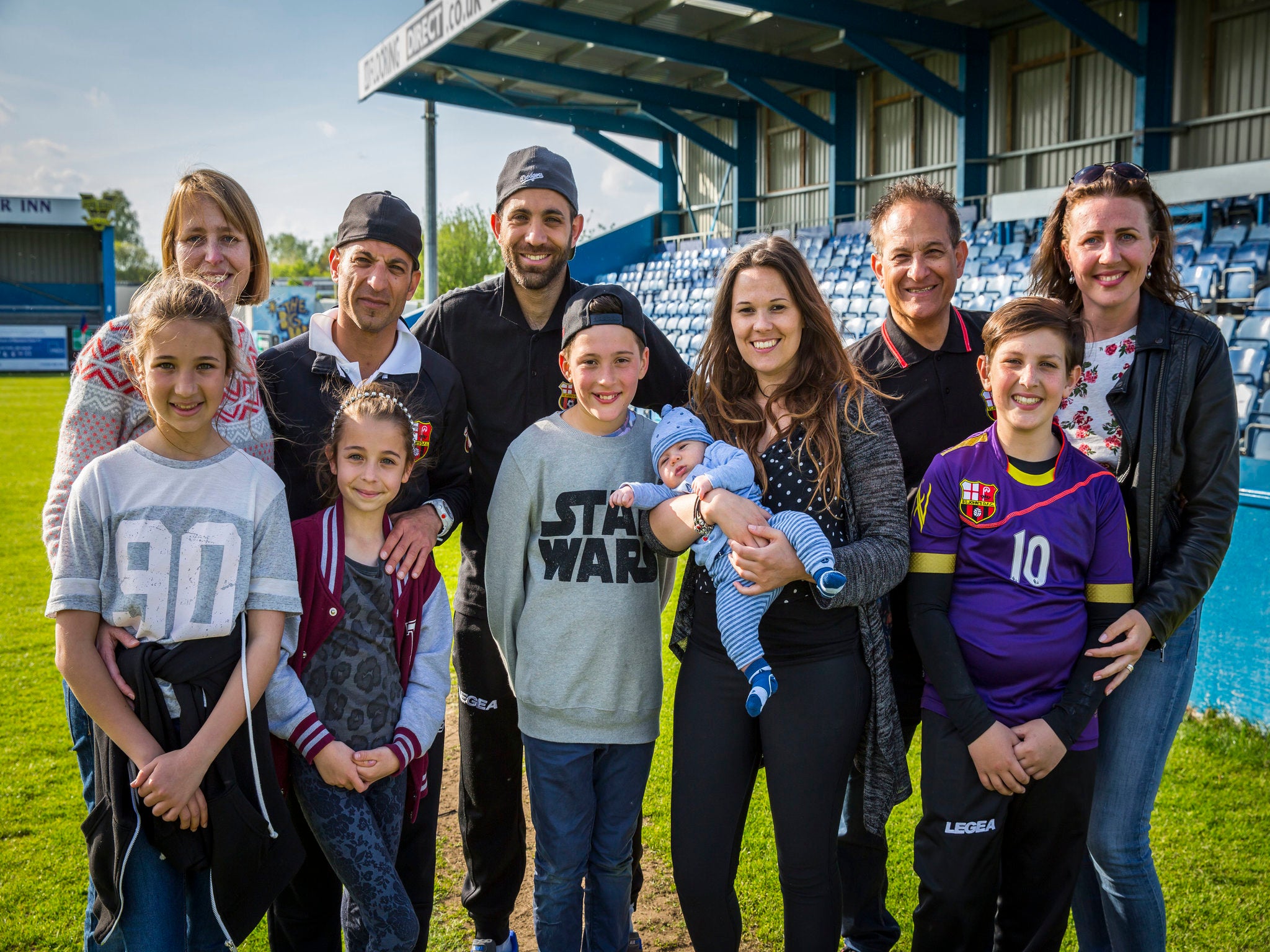
He dreams of being able to afford a top coach so that the players could just concentrate on the football. Lack of support in the hearing world is a topic that comes up time and again. For our interview, we have an interpreter, but when she takes a break I find myself incredibly frustrated that I can’t communicate with Marios. It’s something he says can be a huge problem on a daily basis, particularly when people are not accustomed to the deaf world. When he was training with the national side, there was a hearing manager who, seeing players frantically signing to each other in practice, would tell them to save their energy before the game: “He used to say to us 'you're acting like monkeys on the pitch'...but we couldn't just stand there and say nothing, that would be like a hearing team standing on the pitch in silence.”

Watch Apple TV+ free for 7 days
New subscribers only. £8.99/mo. after free trial. Plan auto-renews until cancelled

Watch Apple TV+ free for 7 days
New subscribers only. £8.99/mo. after free trial. Plan auto-renews until cancelled
Lack of deaf-awareness becomes ever more crucial in a crisis. “If someone in a doctor’s surgery could just sign or finger spell something, it makes such a difference.”
Marios and Tina experienced that during the birth of their baby son Alejandro – “the sign name for peace and quiet because when he was born he didn’t really cry at all, we’re crossing our fingers it continues that way” – which viewers see on film. We see them visit the birthing suite and be talked through the procedures with an interpreter. During the later stages of labour, not shown on camera, Tina had to be induced so they were moved onto a maternity ward where the team didn’t know the couple. “There was no communication, no explanation and that’s what was the most frustrating ... they treated us like we were nothing, they just did this lot of thumbs up and pointing. They kept saying ‘two, two, two’ and we didn’t know if it was two minutes, two hours, second floor, two centimetres. It was really bad.”
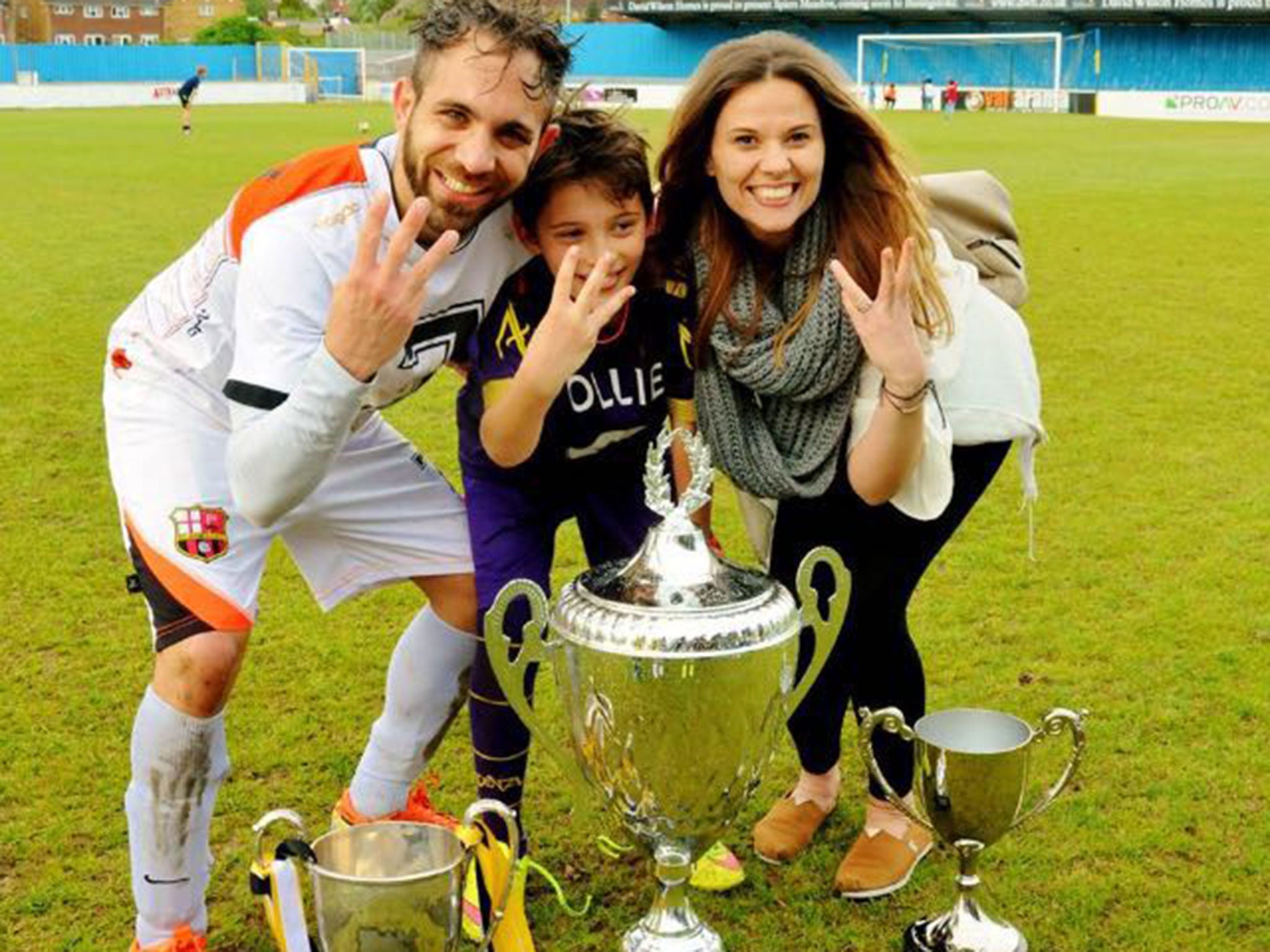
He’s clear there needs to be changes “Hospital staff, nurses, midwives, everyone should have
deaf awareness, even if it’s not sign language. They probably come across many international, foreign language-speaking patients and we are British citizens, we just speak a different language to people here. It’s the same as a French person that turned up at the hospital that couldn’t speak English, it’s a second language. If they can provide for the many different languages that are spoken, I think they should be able to provide for us as well.”
It’s hard to argue with that. Marios works with deaf children and is passionate that clubs like St John’s are vital to kids who have hearing parents who might not speak BSL. “Children say to me, ‘can I stay here please? I don’t want to go home’. You ask them why and they say ‘because I can’t talk to anyone when I get there’. As a deaf adult that really does pull at your heart strings. The more deaf clubs that close down it’s children that suffer as they don’t have anywhere to express themselves use their native language.”
While those with better speech such as Abigail have hearing friends, Marios admits his are almost exclusively from the deaf world, or can at least sign. “If I was with a hearing person, I’d have to look at their lips all the time. It would be limiting to what we could talk about, we couldn’t have an in-depth conversation.”
More than anything, he hopes the film will attract people to both the difference and similarities in deaf culture to hearing. “I hope people are going to say – what are these crazy people on the screen doing? They're using they’re hands and signing they’re using gestures. I hope it is going to change people’s perceptions and I hope it is going to make everyone attracted to signing and deaf culture and community.”
'Life and Deaf' is on BBC4 Monday July 4 at 9pm
Join our commenting forum
Join thought-provoking conversations, follow other Independent readers and see their replies
Comments